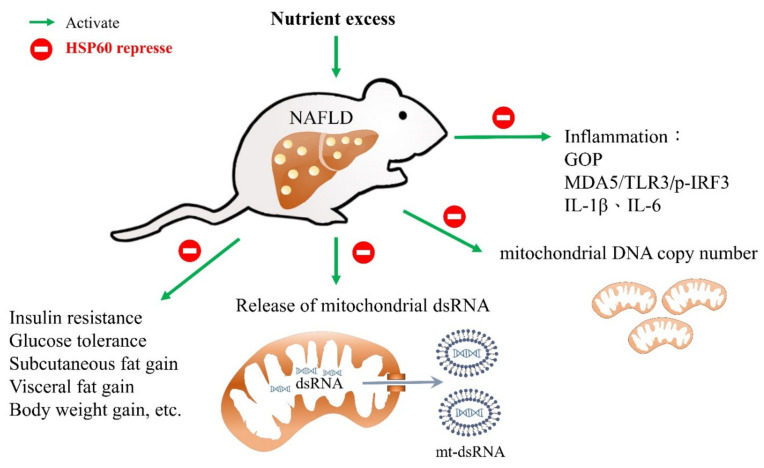Figure 7.
Proposed model of heat shock protein 60 restricts release of mitochondrial dsRNA to suppress hepatic inflammation and ameliorate non-alcoholic steatohepatitis in mice. High-fat diet (HFD) composed of 60% calories from fat can induce an obesity animal model that is characterized by steatohepatitis, glucose intolerance, and insulin resistance. Gain of heat shock protein 60 (HSP60) alleviated not only HFD-induced body weight gain, fat accumulation, and hepatocellular steatosis, but also glucose tolerance and insulin resistance. Furthermore, overexpression of HSP60 in the HFD group resulted in inhibited release of mitochondrial dsRNA (mt-dsRNA) compared to wild-type mice. In addition, overexpression of HSP60 also inhibited the activation of toll-like receptor 3 (TLR3), melanoma differentiation-associated gene 5 (MDA5), and phosphorylated-interferon regulatory factor 3 (p-IRF3), as well as inflammatory biomarkers such as mRNA of il-1β and il-6 expression in the liver in response to HFD.

